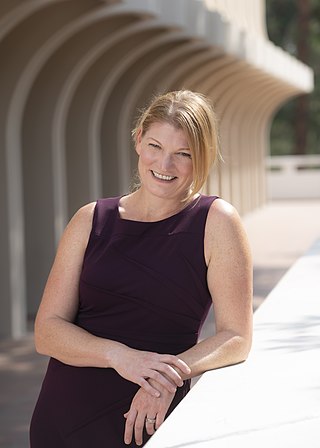Psychology is the scientific study of mind and behavior. Its subject matter includes the behavior of humans and nonhumans, both conscious and unconscious phenomena, and mental processes such as thoughts, feelings, and motives. Psychology is an academic discipline of immense scope, crossing the boundaries between the natural and social sciences. Biological psychologists seek an understanding of the emergent properties of brains, linking the discipline to neuroscience. As social scientists, psychologists aim to understand the behavior of individuals and groups.

The American Psychological Association (APA) is the main professional organization of psychologists in the United States, and the largest psychological association in the world. It has over 157,000 members, including scientists, educators, clinicians, consultants, and students. It has 54 divisions, which function as interest groups for different subspecialties of psychology or topical areas. The APA has an annual budget of around $125 million.
Psychological testing refers to the administration of psychological tests. Psychological tests are administered or scored by trained evaluators. A person's responses are evaluated according to carefully prescribed guidelines. Scores are thought to reflect individual or group differences in the construct the test purports to measure. The science behind psychological testing is psychometrics.

Albert Bandura was a Canadian-American psychologist. He was a professor of social science in psychology at Stanford University.

Robert Beno Cialdini is an American psychologist. He is the Regents' Professor Emeritus of Psychology and Marketing at Arizona State University and was a visiting professor of marketing, business and psychology at Stanford University.

Claude Mason Steele is a social psychologist and emeritus professor at Stanford University, where he is the I. James Quillen Endowed Dean, Emeritus at the Stanford University Graduate School of Education, and Lucie Stern Professor in the Social Sciences, Emeritus.

Lisa Feldman Barrett is a Canadian-American psychologist. She is a University Distinguished Professor of psychology at Northeastern University, where she focuses on affective science and co-directs the Interdisciplinary Affective Science Laboratory. She has received both of the highest scientific honors in the field of psychology, the William James Fellow Award from the Association for Psychological Science for 2025, and the Award for Distinguished Scientific Contributions from the American Psychological Association for 2021. Along with James Russell, she is the founding editor-in-chief of the journal Emotion Review. Along with James Gross, she founded the Society for Affective Science.

Carol Susan Dweck is an American psychologist. She holds the Lewis and Virginia Eaton Professorship of Psychology at Stanford University. Dweck is known for her work on motivation and mindset. She was on the faculty at the University of Illinois, Harvard, and Columbia before joining the Stanford University faculty in 2004. She was named an Association for Psychological Science (APS) James McKeen Cattell Fellow in 2013, an APS Mentor Awardee in 2019, and an APS William James Fellow in 2020, and has been a member of the National Academy of Sciences since 2012.
Douglas T. Kenrick is professor of psychology at Arizona State University. His research and writing integrate three scientific syntheses of the last few decades: evolutionary psychology, cognitive science, and dynamical systems theory. He is author of over 170 scientific articles, books, and book chapters, the majority applying evolutionary ideas to human cognition and behavior.
Susan Kay Nolen-Hoeksema was an American professor of psychology at Yale University. Her research explored how mood regulation strategies could correlate to a person's vulnerability to depression, with special focus on a depression-related construct she called rumination as well as gender differences. She is credited with bringing rumination to the attention of clinical psychology, and since the time of her early writings, rumination has emerged as one of the most powerful cognitive risk factors for depression.
Everett Lowell Kelly was an American clinical psychologist, professor of psychology at the University of Michigan, president of the American Psychological Association (1954–55), and chairman of the Executive Committee for the Boulder Conference on Graduate Training in Clinical Psychology (1948–49).
Batja Mesquita is a Dutch social psychologist, a cultural psychologist and an affective scientist. She is a professor of psychology at the University of Leuven, Belgium, where she studies the role of culture in emotions, and of emotions in culture and society. She is director of the Center for Social and Cultural Psychology in Leuven.
Ulrich Trautwein is a German psychologist and education researcher. He has been a Full Professor of Education Science at the University of Tübingen, Germany, since October 2008. In addition, he has been director of LEAD Graduate School & Research Network at Tübingen University since 2012. Since 2014, he has also headed the Hector Research Institute of Education Sciences and Psychology in Tübingen.
Elizabeth (Betsy) Levy Paluck is a professor in the department of psychology and the Princeton School of Public and International Affairs at Princeton University, where she also serves as deputy director of the Center for Behavioral Science & Policy. She is known for her work on prejudice, social norms and conflict reduction. She is best known for creating large-scale field experiments utilizing theoretical social psychology strategies and tools to formulate effective and practical methods for reducing conflict and discrimination. Due to her extensive work investigating the influences of the Rwandan genocide and her work with high school bullying, Paluck is considered a leading authority on field-tested methods of changing intolerant and aggressive social behavior.

Stacey Sinclair is an American psychologist and professor of psychology and public affairs, and associate professor of African American studies at Princeton University. Her research focuses on how interpersonal interactions translate culturally held prejudices into individual thoughts and actions.

Candice Lynn Odgers is a Canadian developmental and quantitative psychologist who studies how early adversity and exposure to poverty influences adolescent mental health. Her team has developed new approaches for studying health and development using mobile devices and online tools, with a focus on how digital tools and spaces can be improved to support children and adolescents. Odgers is currently a professor of Psychological Science at the University of California, Irvine and a research professor at Duke University. Odgers is also the co-director of the Child and Brain Development Program at the Canadian Institute for Advanced Research.

Peter Jason Rentfrow is professor of personality and individual differences in the Psychology Department at Cambridge University, where he directs the Social Dynamics Research Center. He is an elected Fellow of the Association for Psychological Science, the Society for Personality and Social Psychology, and the Alan Turing Institute.

Andres De Los Reyes is a professor of psychology at University of Maryland College Park. He is also the director of the Comprehensive Assessment and Intervention Program Laboratory, editor-in-chief of the Journal of Clinical Child & Adolescent Psychology, the official journal of the Society of Clinical Child and Adolescent Psychology, Division 53 of the American Psychological Association. He also founded and remains a program chair of the JCCAP Future Directions Forum, an annual conference affiliated with the journal. De Los Reyes has co-authored over 100 peer-reviewed scientific articles and book chapters, and recently completed a term as a Fulbright Canada Research Chair in mental health at the University of Regina. He is known for his work on psychological assessment, particularly understanding the potential sources and implications of apparent disagreement between different people's perceptions of youth emotion and behavior, as often happens when parents, teachers, and youths are asked separately about the youth. He also works extensively on issues surrounding mentorship and skills-based approaches to early career development. He is the author of The Early Career Researcher's Toolbox: A career development guide that includes strategies for working with mentors, publishing peer-reviewed articles, and interviewing for faculty positions. Career development coaching and activities are also a prominent feature of the Future Direction Forum.

Jessica Schleider is an American psychologist, author, and an associate professor of Medical Social Sciences at Northwestern University. She is the lab director of the Lab for Scalable Mental Health.
Stephanie Madon is a professor in the School of Interdisciplinary Forensics and faculty member of the Law and Behavioral Sciences program at Arizona State University (ASU). Her early research focused on self-fulfilling prophecies and stereotypes, while her current research focuses on how social processes impact people's judgment and behavior in legal situations such as interrogations and confessions.











